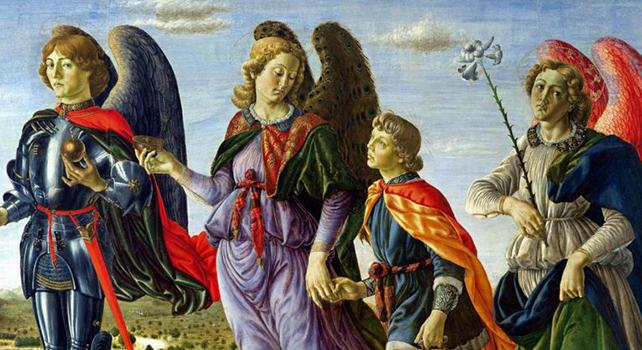THE ANGELS IN THE LETTERS OF SAINT PAUL AND OTHER APOSTLES
Numerous are the passages in which angels are spoken of in the letters of Saint Paul and in the writings of the other apostles. In the First Letter to the Corinthians, Saint Paul says that we have come to be "a spectacle to the world, to angels and to men" (1 Cor 4,9: 1); that we will judge angels (cf. 6,3 Cor 1: 11,10); and that the woman must bear "a sign of her dependence on account of the angels" (XNUMX Cor XNUMX:XNUMX). In the second Letter to the Corinthians he warns them that "Satan also masks himself as an angel of light" (2 Cor 11,14:XNUMX). In the Letter to the Galatians, he considers the superiority of angels (cf. Gai 1,8) and affirms that the law 'was promulgated by means of angels through a mediator "(Gal 3,19). In the Letter to the Colossians, the Apostle enumerates the different angelic hierarchies and underlines their dependence on Christ, in whom all creatures subsist (cf. Col 1,16 and 2,10). In the Second Letter to the Thessalonians he repeats the doctrine of the Lord on his second coming in the company of the angels (cf. 2 Thess 1,6: 7-XNUMX). In the First Letter to Timothy he says that "the mystery of piety is great: He manifested himself in the flesh, was justified in the Spirit, appeared to the angels, was announced to the pagans, was believed in the world, was assumed in glory" (1 Tim 3,16, XNUMX). And then he admonishes his disciple with these words: "I beseech you before God, Christ Jesus and the chosen angels, to observe these rules impartially and to never do anything for favoritism" (1 Tim 5,21:XNUMX). St. Peter had personally experienced the protective action of angels. So he speaks of it in his First Letter: “And it was revealed to them that not for themselves, but for you, they were ministers of those things that have now been announced to you by those who preached the gospel to you in the Holy Spirit sent from heaven: things in which the angels wish to fix their gaze "(1 Pt 1,12 and cf 3,21-22). In the second letter he speaks of the fallen and unforgiving angels, as we also read in the letter of St. Jude. But it is in the letter to the Hebrews that we find abundant references to angelic existence and action. The first topic of this letter is the supremacy of Jesus over all created beings (cf Heb 1,4: XNUMX). The very special grace that binds the angels to Christ is the gift of the Holy Spirit granted to them. Indeed, it is the Spirit of God himself, the bond that unites angels and men with the Father and the Son. The connection of the angels with Christ, their ordering to him as creator and Lord, is manifested to us men, especially in the services with which they accompany the saving work of the Son of God on earth. Through their service the angels make the Son of God experience that he became man who is not alone, but that the Father is with him (cf. Jn 16,32:XNUMX). For the apostles and disciples, however, the word of the angels confirms them in the faith that the kingdom of God has approached in Jesus Christ. The author of the letter to the Hebrews invites us to persevere in the faith and takes the behavior of angels as an example (cf. Heb 2,2: 3-XNUMX). He also speaks to us of the incalculable number of angels: "Instead, you have approached Mount Zion and the city of the living God, heavenly Jerusalem and myriads of angels ..." (Heb 12:22).
